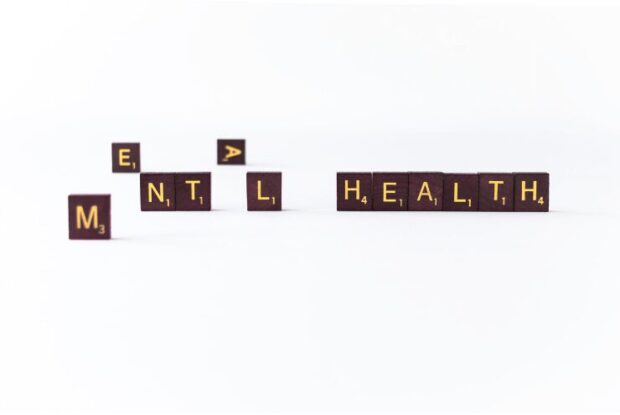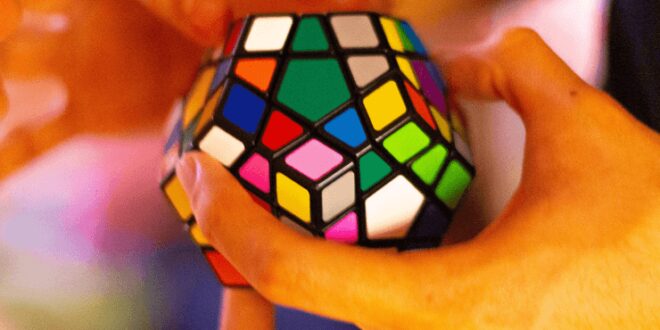Brain atrophy involves tissue degradation, loss of neurons and destruction of neuronal cell connection pathways. Brain atrophy can be a natural consequence of ageing, but it can also be a precursor to diseases such as dementia, Alzheimer’s, sclerosis, etc. Atrophy is one of the most common neurological diseases, affecting different parts of the brain from person to person.
Thus, there are situations where the whole brain is degraded by atrophy and cases where the disease occurs only in certain regions of the brain. It’s natural to lose neurons as we age, but experts warn that the process develops slowly.
Experts point out that atrophy has no specific treatment for prevention. Rather, individual treatments are indicated to treat underlying diseases or factors. Otherwise, it’s up to us to reach old age with a healthy brain. Stress, unbalanced diet, sleep disorders, burnout, depression or past traumas are some of the factors with a major negative impact on the brain.
How can we slow brain atrophy? What are the recommended changes for a healthy life routine?
Can one live with atrophy? Yes, but the quality of life is severely altered
The mortality rate among patients diagnosed with atrophy is more likely to be related to neurological diseases that accelerate cellular degradation. In other words, one can live with atrophy, but the quality of life is severely impaired.
The progressive depletion of nerve cells and interneuronal connections deregulates memory, the ability to orient oneself in time and space, communication skills, coordination of movements or understanding of written and verbal messages. What do experts say?
-
Sedentary lifestyles rest the body but tire the brain
Take a walk outside more often or join a swim. Go hiking or start your mornings with a jog through the park. When you get your body moving you optimise blood circulation, which carries oxygen and nutrients to the brain. Oxygenating the brain improves concentration, creativity and the brain’s response to stressors.
-
Relaxation is not for lazy people
Intense physical activity leads to muscle fever. Muscle discomfort causes insomnia. Poor rest degrades neural pathways and increases the chances of associated diseases such as dementia or Alzheimer’s. Alternate physical training with alternative relaxation therapies. After gym class, choose to restore your body with massage sessions. In most cases, daily tasks leave no time for massage appointments.

Fujiiryoki massage chairs were created for this purpose! Intensive massage programmes with 5D technology are designed to provide personalised massage on stiff areas that have been detected by scanning. Electric massage stimulates blood circulation, soothes muscle and joint pain, thus preparing the body for rest.
It’s important to massage your body before bed, especially if you’ve had an active day. After exertion, muscles are strained due to excess lactic acid. The lactic acid built up in the muscles promotes muscle fever. With massage, the muscles relax, lactic acid decreases due to balanced and constant blood circulation.
-
Stress overwhelms you, but you don’t ask for help
Traumatic events, depression, and the inability to manage stressors are all factors that lead to atrophy. This is why it is advisable to seek the help of a psychotherapist who will pinpoint the real causes of emotional imbalance and will be able to help you with personalized treatment.
-
Social interactions must be of high quality
Staying socially active is also an interesting way to keep your brain young. When you are around people, your brain is stimulated by interacting with others. Studies show that lack of socializing damages the brain just as much as lack of sleep.
Lack of cognitive stimulation through socialisation leads to apathy, boredom, anxiety and even dementia. Quality interactions, relationships with people who share your values, are important. You can sign up for a hobby course or get involved in volunteering.
-
Chess, sudoku, and crosswords are not just for kids

If we don’t stimulate the brain constantly, then the interneuronal connection pathways weaken. By developing new skills, neural circuits are formed and neuroplasticity increases. The more and stronger these pathways are, the lower the risk of brain damage.
When you’re on the road and bored in the car, take advantage and have fun completing crosswords. You can also sign up for chess lessons or practice with friends. This way, you’re shooting two birds with one stone: socialising and getting your brain in gear. What could be healthier?
-
Positive thinking is not a fad
Setting a positive mindset is not a trend set by motivational speakers, but a solution to protect your brain function. Studies show that negative emotions, anger, sadness decrease blood flow to the brain, harden arteries and damage the pathways connecting neuronal cells.
-
Hydration is vital
Drinking at least 2 litres of water a day helps us achieve radiant skin and a happy brain. Research points out that insufficient water intake shrinks neurons.
-
Adopt brain-friendly diets

Nutrition is crucial for a strong immune system and an iron brain. Provide your body with those foods that work wonders for your cognition. Include foods rich in Omega-3 and vitamin B in your daily diet. Start adding foods like oily fish, avocado, whole grains, pumpkin seeds, olive oil, berries or green leafy vegetables to your plate.
-
Be careful what you DON’T eat
Brain health also depends on what you DON’T eat. Avoid sugar and reduce red meat consumption to no more than 4 times a week. Sweets damage beneficial gut bacteria and red meat increases the risk of inflammation.
Most people see old age as the time when we are most hunted by diseases that make us dependent on the help of others. In reality, old age is the consequence of how you have chosen to live your life up to that point, the sum of the choices you made in your youth. To keep your brain strong, play sport, engage in activities that challenge your ‘mind’ and consume the nutrients needed for cognitive stimulation. Seek professional help for stress management and healing emotional problems.
Photo source: unsplash.com
 Jewel Beat
Jewel Beat

